
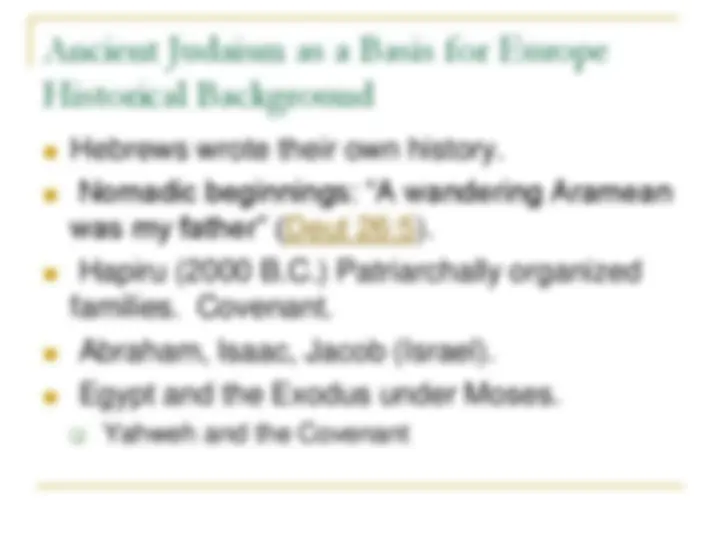
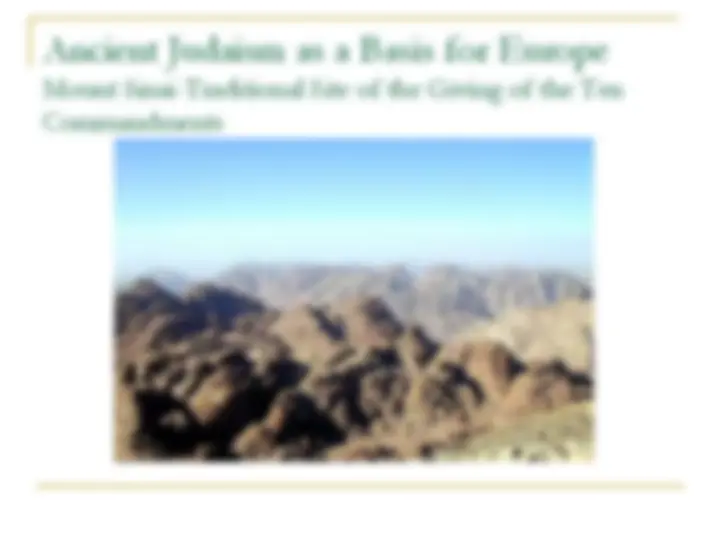
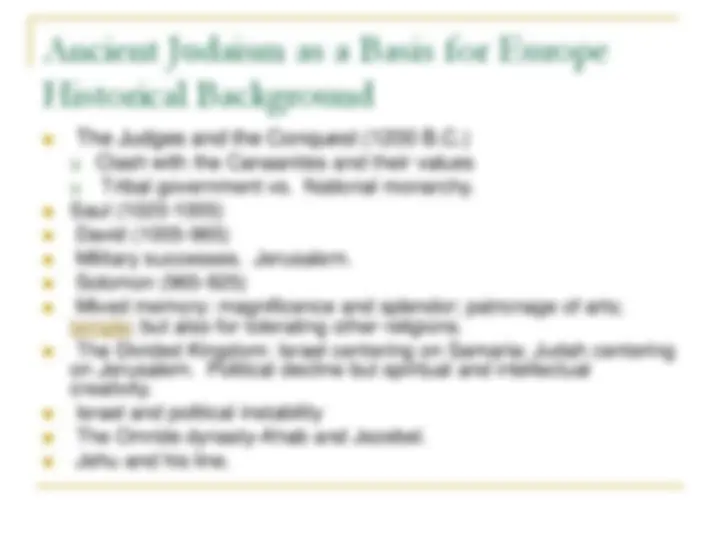
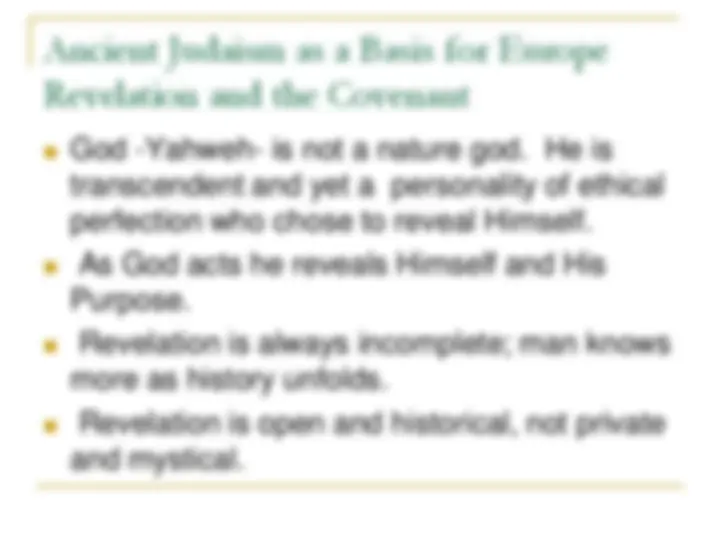
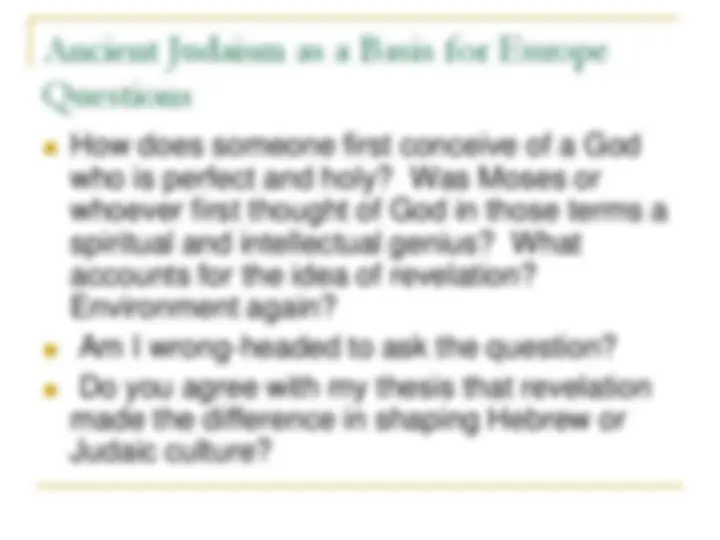
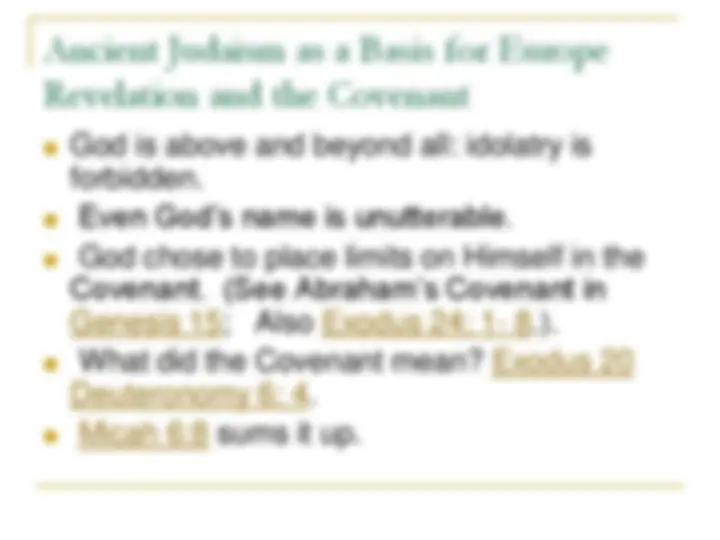
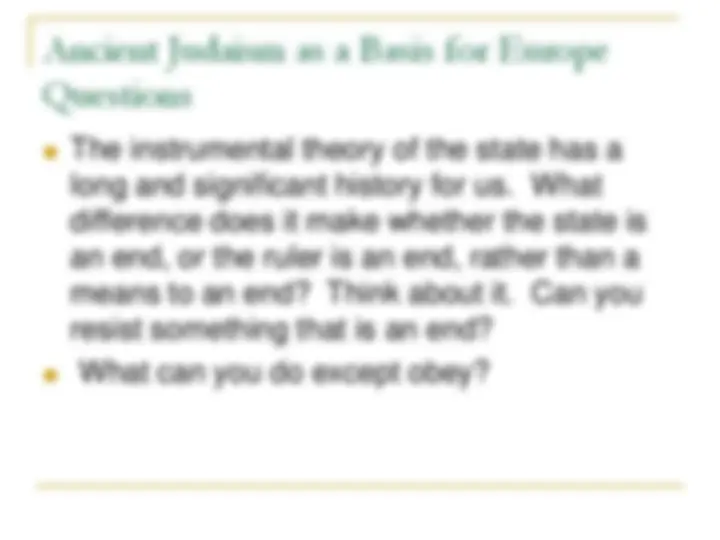
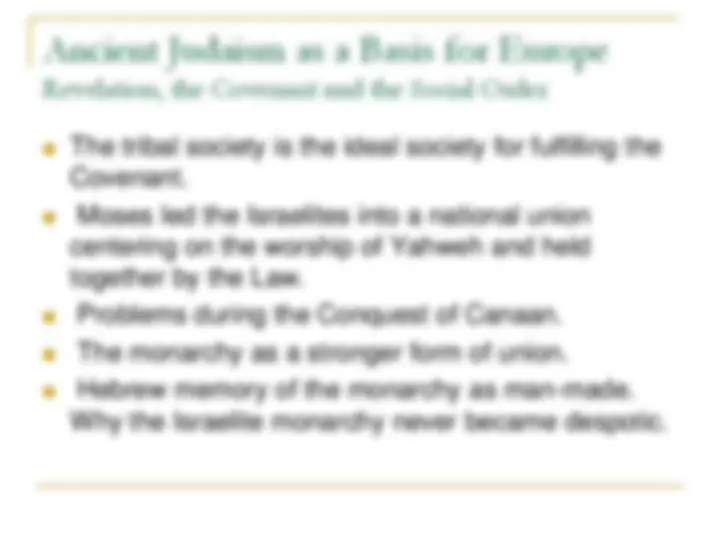
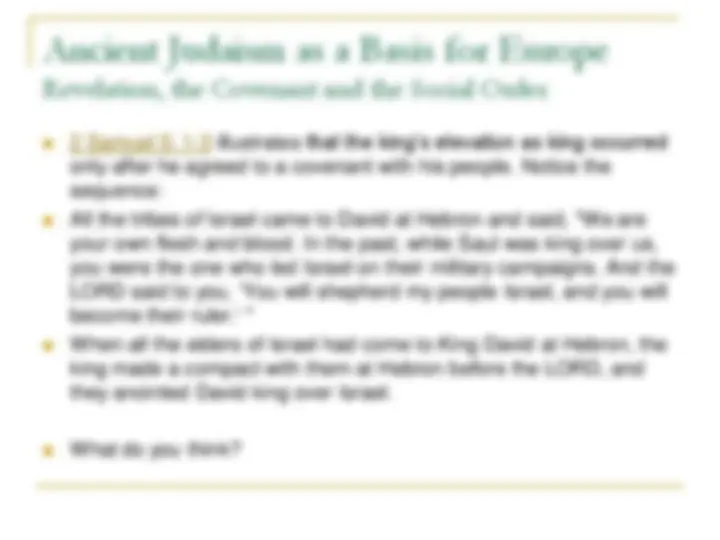
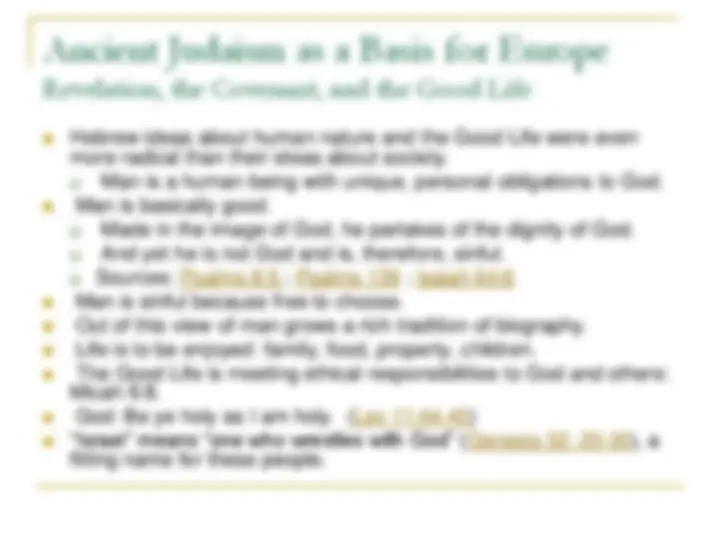
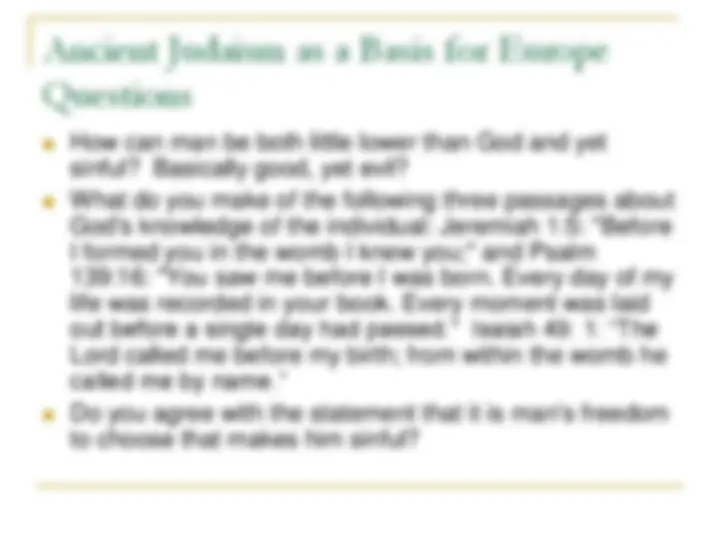
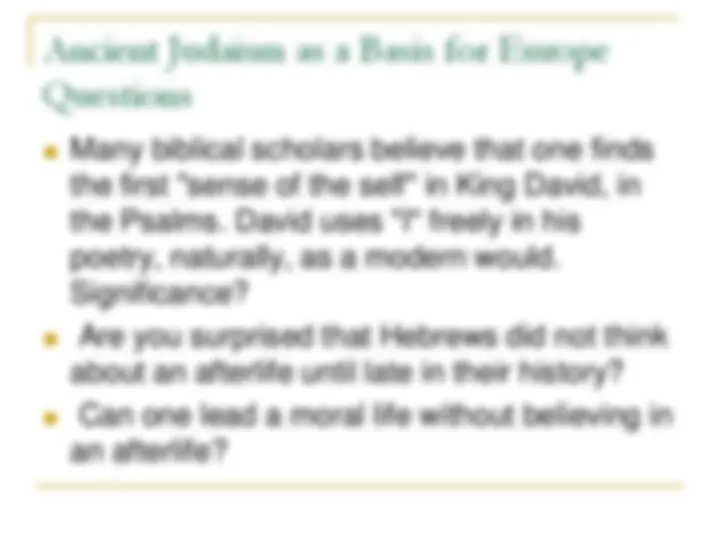
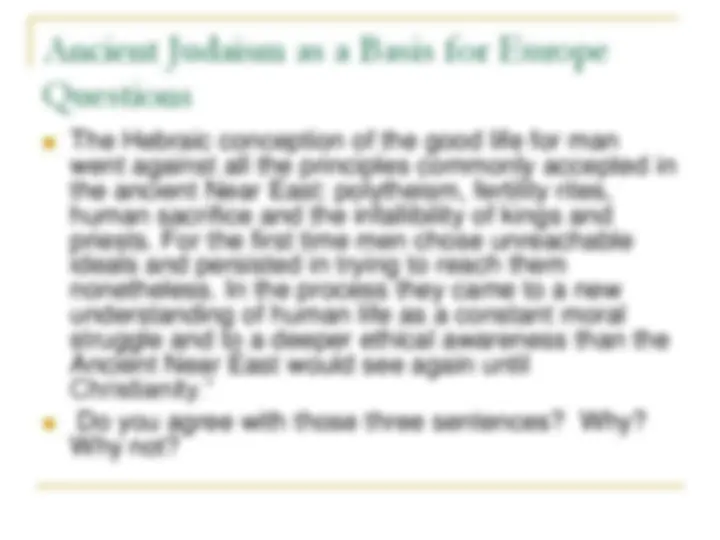
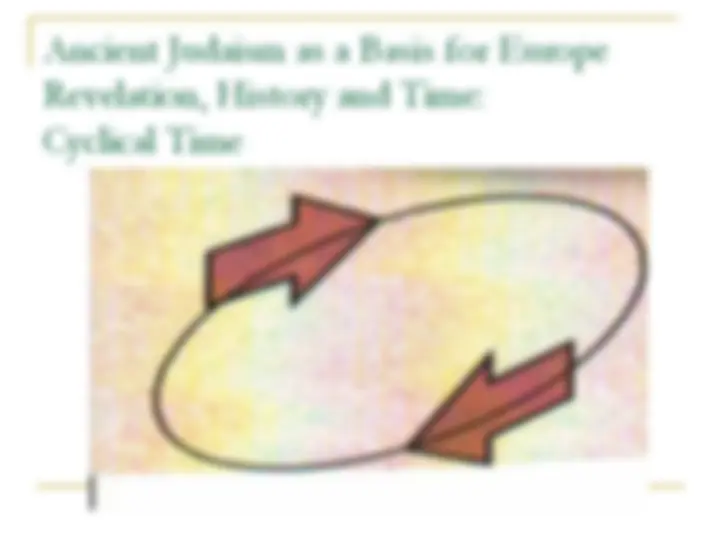
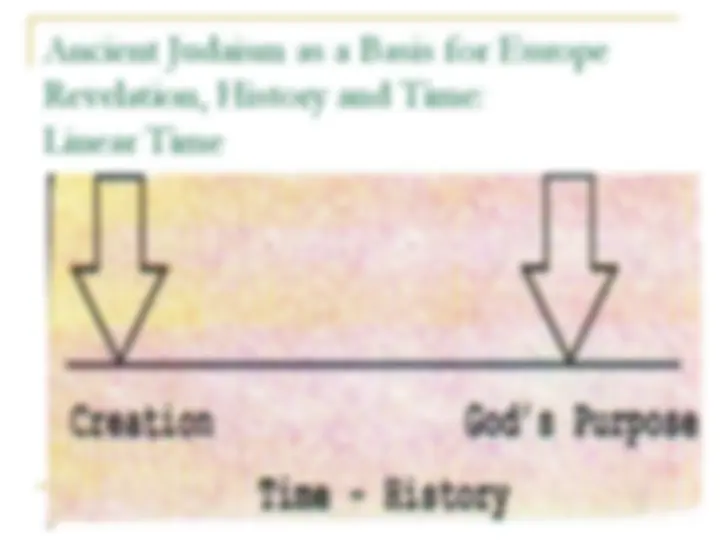
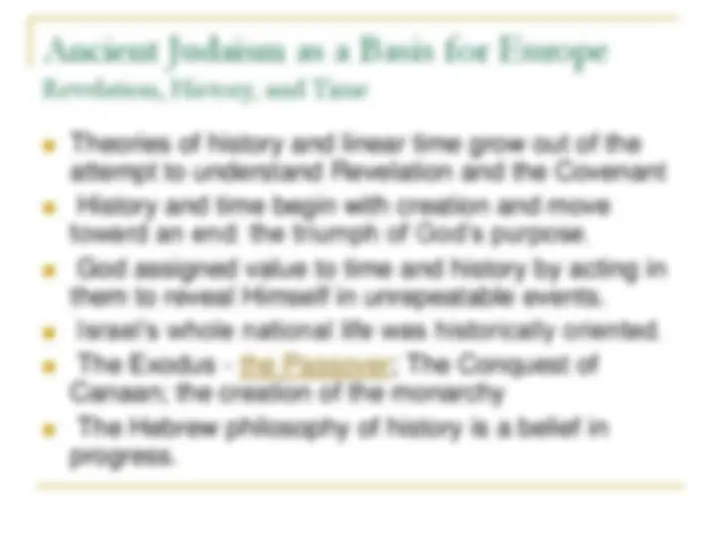
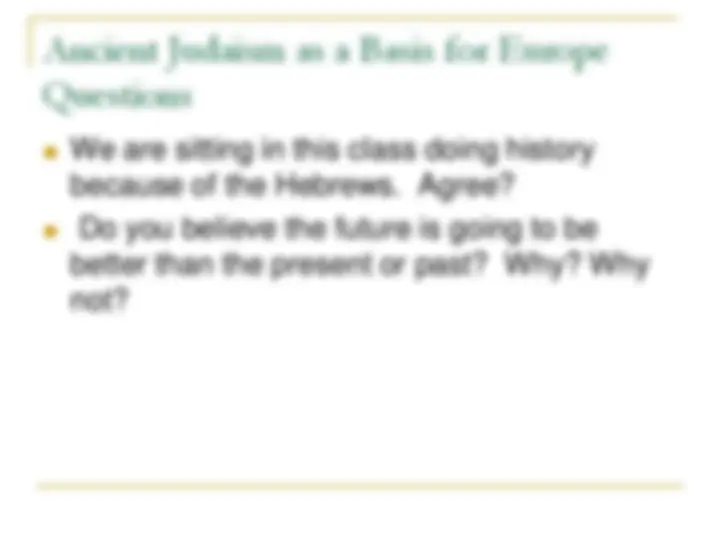
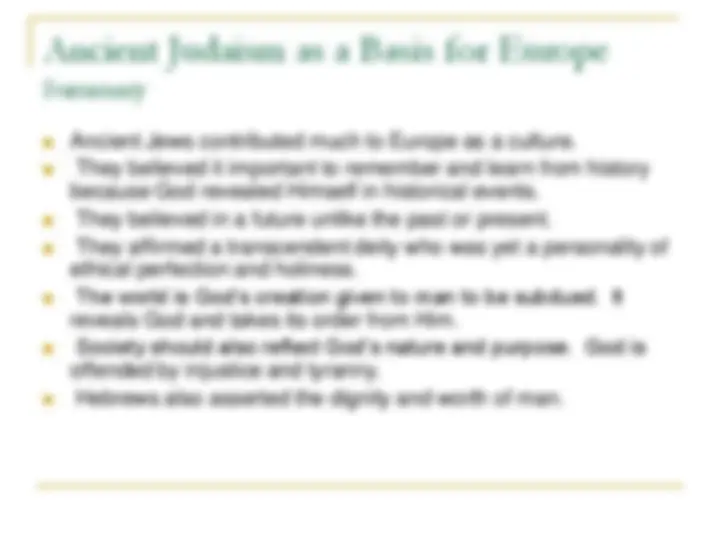
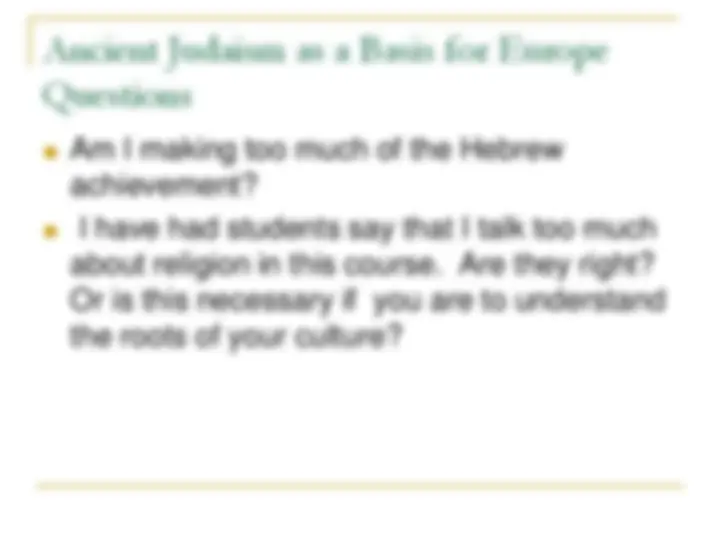


Study with the several resources on Docsity

Earn points by helping other students or get them with a premium plan


Prepare for your exams
Study with the several resources on Docsity

Earn points to download
Earn points by helping other students or get them with a premium plan
Community
Ask the community for help and clear up your study doubts
Discover the best universities in your country according to Docsity users
Free resources
Download our free guides on studying techniques, anxiety management strategies, and thesis advice from Docsity tutors
The foundational role of ancient judaism in shaping european culture, particularly in the areas of monotheism, revelation, and social order. It delves into the historical background of the hebrews, their beliefs, and the impact of their ideas on european civilization.
Typology: Papers
1 / 27

This page cannot be seen from the preview
Don't miss anything!




















Ancient Jews or Hebrews proclaimed a transcendent deity who was working out His purposes in history through the career of his people Israel (Jew, Hebrew, Israelite are synonymous) Revelation, not the rhythms of nature became the norm for explaining life.
The problem of being objective and historical. Revelation made the Hebrew achievement possible.
I have just made the statement that one has to put his faith, or lack of it, aside when thinking about the Hebrews. Do you agree? Why, or why not?
Mount Sinai-Traditional Site of the Giving of the Ten Commandments
The Judges and the Conquest (1200 B.C.) Clash with the Canaanites and their values Tribal government vs. National monarchy. Saul (1020-1005) David (1005-965) Military successes. Jerusalem. Solomon (965-925) Mixed memory: magnificence and splendor; patronage of arts; temple; but also for tolerating other religions. The Divided Kingdom: Israel centering on Samaria; Judah centering on Jerusalem. Political decline but spiritual and intellectual creativity. Israel and political instability The Omride dynasty-Ahab and Jezebel. Jehu and his line.
The Prophets
Isaiah and Micah (700's) The Second Isaiah (500's)
After the Exile the primary force in Judaism was the Law.
God -Yahweh- is not a nature god. He is transcendent and yet a personality of ethical perfection who chose to reveal Himself.
As God acts he reveals Himself and His Purpose.
Revelation is always incomplete; man knows more as history unfolds.
Revelation is open and historical, not private and mystical.
God is above and beyond all: idolatry is forbidden.
Even God‟s name is unutterable.
God chose to place limits on Himself in the Covenant. (See Abraham‟s Covenant in Genesis 15; Also Exodus 24: 1- 8.).
What did the Covenant mean? Exodus 20 Deuteronomy 6: 4.
Micah 6:8 sums it up.
It doesn't make sense that a God who was transcendent would limit Himself, does it? Why did Hebrews believe this? "Nature is not our mother, but our sister." Think about the implications of that. Created, like everything else, by God, but not a model for human conduct. In a press release dated April 6, 2007, Nancy Pelosi, Speaker of the U.S. House said “In this Holy Week, we are reminded of these words in the Old Testament: „To minister to the needs of God‟s creation is an act of worship. To ignore those needs is to dishonor the God who made us.‟ We must move quickly to honor God‟s creation by reducing greenhouse gas pollution in the United States and around the world.” Where in the Old Testament did Mrs. Pelosi find this passage? (If you can find the passage, you get 100 bonus points.) Is there anything about preserving the environment in the Bible?
The instrumental theory of the state has a long and significant history for us. What difference does it make whether the state is an end, or the ruler is an end, rather than a means to an end? Think about it. Can you resist something that is an end?
What can you do except obey?
Revelation, the Covenant and the Social Order
The tribal society is the ideal society for fulfilling the Covenant.
Moses led the Israelites into a national union centering on the worship of Yahweh and held together by the Law. Problems during the Conquest of Canaan.
The monarchy as a stronger form of union. Hebrew memory of the monarchy as man-made. Why the Israelite monarchy never became despotic.
How important is the tradition that even the king is subject to the law and to ethical and moral standards? What modern legal principle can be traced back to that tradition?
Lord Acton said in the 19th century "Power tends to corrupt; absolute power corrupts absolutely." Would the Old Testament writers agree?
Doing good or doing well: which is the responsibility of those in power?
The Old Testament prophets seemed to have a bias against the kings and wealthy, didn't they? Why? Do you agree that those with power over others have special responsibilities with that power?
Leviticus 25:10 contains the words on the American Liberty Bell: "Proclaim liberty throughout the land to all its inhabitants." Political freedom is part of the Judaic heritage too, isn't it?
How can man be both little lower than God and yet sinful? Basically good, yet evil? What do you make of the following three passages about God's knowledge of the individual: Jeremiah 1:5: "Before I formed you in the womb I knew you;" and Psalm 139:16: "You saw me before I was born. Every day of my life was recorded in your book. Every moment was laid out before a single day had passed." Isaiah 49: 1: “The Lord called me before my birth; from within the womb he called me by name.” Do you agree with the statement that it is man's freedom to choose that makes him sinful?
Many biblical scholars believe that one finds the first "sense of the self" in King David, in the Psalms. David uses "I" freely in his poetry, naturally, as a modern would. Significance?
Are you surprised that Hebrews did not think about an afterlife until late in their history?
Can one lead a moral life without believing in an afterlife?